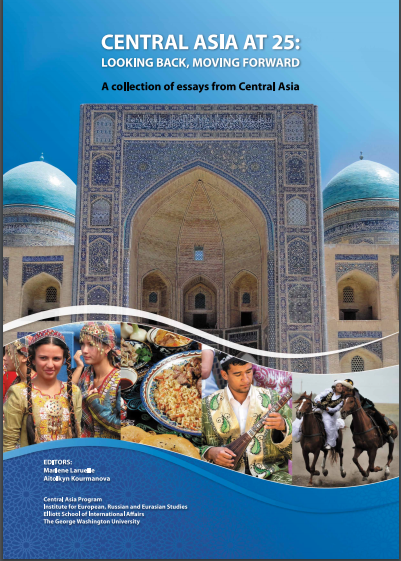EDITORS:Marlene Laruelle, Aitolkyn Kourmanova
In the twenty-five years since the collapse of the Soviet Union catapulted the Central Asian states into independence, knowledge of the Central Asian region has primarily been produced by US and European scholars. Russian academic research—so rich during the Soviet decades—largely collapsed, and has only just begun to get back on its feet. Japan has emerged as a new hub for state-of-the-art knowledge on the region, but is still only loosely connected to the main, predominantly English speaking platforms of exchange and therefore does not—yet—influence the broader picture.
China, India, Iran, and Turkey all have great specialists working on the region. Yet, with the potential exception of India’s scholars, these specialists tend to work individually, without producing a distinct “school of thought.” More striking still is the lack of Central Asian voices to be heard in the West. Particularly in the United States, the influence of Central Asian scholars is limited a mere handful of renowned academics from the region, often from Soviet generations. This state of affairs is nonetheless changing thanks to the rapid organization of a new generation of transnational scholars who are generating knowledge that is largely detached from national contexts, and who are either “Westerners” based in Central Asia or Central Asians based in the “West,” while all prefer patterns of academic “nomadism.” To reflect on a quarter century of independence, we have decided to give the floor exclusively to local voices. In the following pages, Central Asian scholars express what they consider the main successes and failures of these 25 years of national sovereignty, as well as the challenges their societies face in the near and long-term future.
The first part of the book insists on three critical elements of the last 25 years: processes of integration of the new states into the international scene; an ideology that absolutizes the sovereignty acquired in 1991 as the quintessence of national achievement; and, domestically, a political path that is shaped by presidentialism and a fear of pluralism of opinions, which all these countries see as a threat to their stability and essence.
You can download and read this book Central Asian


